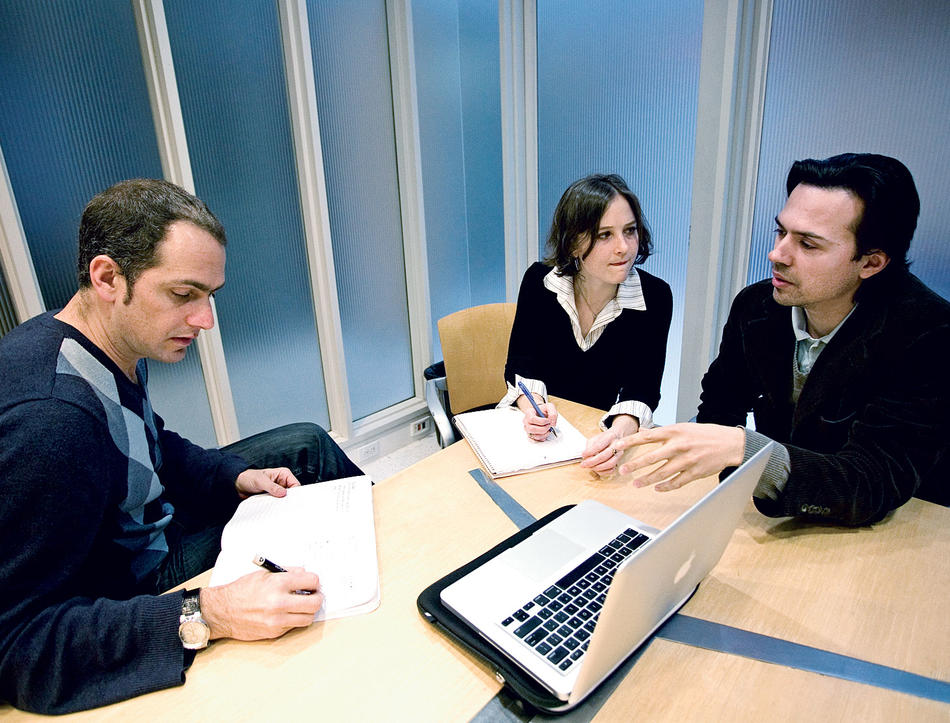Gal Bar Dea, a Columbia MBA student from Israel, began his quest for world peace with an e-mail blast. Thirty-five fellow Columbia graduate students responded and together they created SPIRIT Initiative, a Web-based project whose objective is explained by its full name: Students Participating in Resolving International Tensions.
Last fall, the students sought peace proposals from peers at 50 universities around the world. They received 31 proposals, most of them addressing long-simmering conflicts in the Middle East, in Afghanistan and Pakistan, and in civil war–torn Colombia. They recruited a panel of experts to choose the best eight; these papers soon will appear on the group’s Web site, spiritinitiative.org.
The SPIRIT Initiative’s guiding principle, Bar Dea says, is that brilliant ideas will emerge from inclusive conversations. To this end, the group’s Web site soon will permit anybody to contribute thoughts and suggestions on specific proposals.
More than 100 students from around the world are expected to attend the organization’s April 9 inaugural conference in New York City. Graduate students from Colombia, Nigeria, Israel, and elsewhere will present their papers to invited UN officials and to academics. One plan would create a UN fellowship program to educate Pakistani and Afghani youth. Another would launch a tax-exempt fish-farming industry to give jobs to people in Gaza.
“This whole idea came from wanting to change things in my country,” says Bar Dea, whose group has received institutional support from Columbia Business School and the School of International and Public Affairs. “You have new governments, new prime ministers, and nothing happens. We’re not trying to replace the decision makers, but we know we can contribute.”



